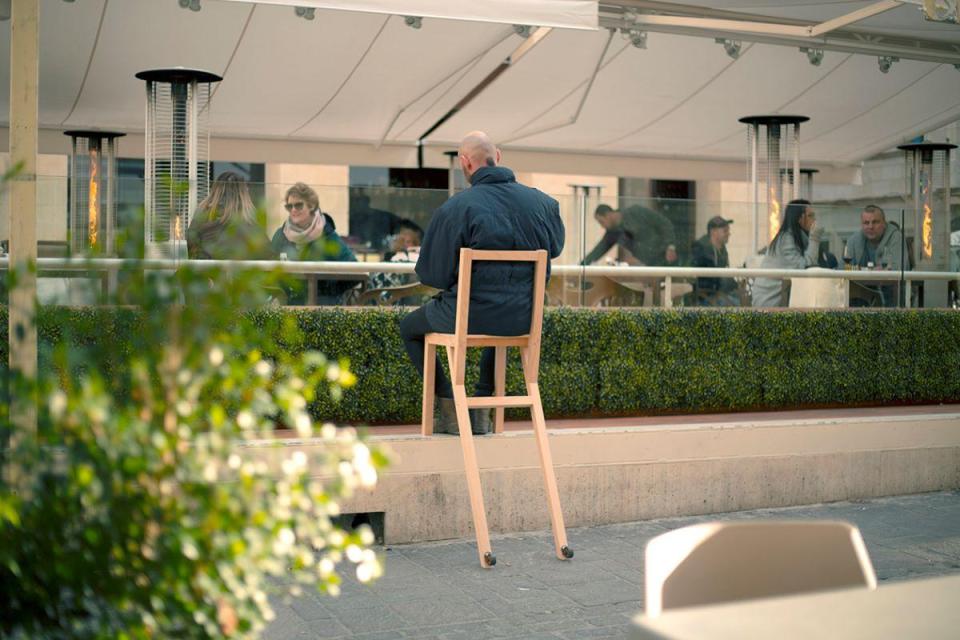Exhibition puts to light survival strategies of marginalised groups
An intriguing exploration of practices that have been devised or used by disenfranchised communities to overcome barriers

The exhibition Figure It Out; The Art of Living Through System Failures is currently running in the ancient arched spaces of the Malta Society of Arts basement vaults.
Presented to accompany a two-day symposium which took place between September 19 and 20, the exhibition, running until October 5, is an intriguing exploration of practices that have been devised or used by disenfranchised communities to overcome barriers established by administrative, institutional and now algorithmic regimes.
Marginalised and vulnerable groups are often forced to develop strategies to counter state institutions and corporations, creating tools to overcome their exclusion from mainstream society, whether to exercise their rights or even simply to survive.
Finding ‘holes in the system’ and using them to their advantage, underserved sectors have long worked with great ingenuity to improve their own lives and that of their communities.
With the encroachment of technology into daily life, dataveillance, algorithmic governance and digital profiling have digitised mechanisms of exclusion and so disenfranchised groups globally embracing innovative IT-based activism.
 Bulle Cybernétique by Elena Giulia Abbiatici
Bulle Cybernétique by Elena Giulia AbbiaticiBulle Cybernétique, for example, is a luxury scent, the result of a project conceived by artist and art historian Elena Giulia Abbiatici, in collaboration with Diletta Tonatto, a fine-nosed Italian parfumier who is also a sociologist.
Together they explore the fascinating concept of developing a scent formula that contains encrypted information, and has therefore the potential to circumvent governmental restrictions, state confinement measures and media censorship.
The fragrance has been created using an analysis of world cybercrime maps and major cyberattacks: web threats, sabotage, espionage and computer break-ins involving large companies and entire countries.
Each type of attack, as well as the states or companies involved, was associated with specific olfactory notes and the relationship between chemical and digital in an algorithmic code.
The resultant perfume, an ephemeral ‘enigma code’ can be decoded either by professional ‘noses’ or by using a technique called headspace analysis in combination with gas chromatography.
 Flag Stories by Škart
Flag Stories by ŠkartEncouraging reflection on the environmental, financial and human impact of data extraction, and the science of communication and control that underpins modern global geopolitics, it’s a mysterious, seductive and unexpected idea that might have been plucked from a cutting-edge spy movie.
Also reflecting upon data and the dynamics of its access and storage, artist Azahara Cerezo has created an autonomous portable server connected to a solar panel that accesses the internet via WiFi and SIM card.
An exploration of the intersection of domestic spaces and creative labour for the future, with a small mirror and a camera, this shoulder-bag-sized server takes selfies of elements inside that physically sustain the artist’s website and support her work. In this way, she references Marcel Duchamp’s La Boîte-en-valise series of mixed media assemblages in which the importance of portability was key.
Other exhibits look back, showcasing tools and techniques that have had an impact in Europe over recent years.
For 10 years, for example, the Belgrade group Škart have developed a self-publishing and self-distribution strategy encouraging anti-war action, and they are bringing Flag Stories (use and pass on), a series of flags on synthetic canvas, to Figure It Out.
Through years of field work, Škart have been collecting the experiences of people in diverse environments – in public spaces and at street protests, in institutions for the elderly, orphanages and asylum centres. These have been shortened to ‘micro (im)practical situations’ and are presented in comic strip format.
“Survival tool are each different, each personal, each useful,” Škart explains.
“Story-flags, dancing with the mischievous and messy wind, remind us that every little invisible tool-of-rebellion and riot-step is important. Or, as Slobodan S. (a teacher at the Children’s Home from Bela Crkva) says: “if you care and dare – you can change reality; if not – you can just look to the sky.”
 Women’s Affairs by Kiosk
Women’s Affairs by KioskThe installation Women’s Affairs is a second Serbian contribution, the result of a series of encounters and conversations with women across the country.
Here, art collective Kiosk shares stories, sounds and photographs of perseverance, survival techniques and small life gestures of resistance in the face of lifelong labour, a dysfunctional administrative web of social benefit. These testify to incredible imagination and heroic endeavours in a hostile environment where hospitality, honesty, and home-made specialties writ large.
From closer to home, the exhibition also includes a chair created by Keith Bonnici as a site-specific focal point for spatial grief through which he expresses the grief for the loss of space found here, where access to and ownership of land is hotly contested. It also brings to mind the diminishing Maltese custom of neighbours taking chairs out onto the pavement outside their houses to socialise. Is electronic communication as good or as safe?
Figure It Out; The Art of Living Through System Failures runs until October 5. Figure It Out is co-funded by the European Union’s Creative Europe programme. In Malta it is supported by the NGO Co-financing Scheme of the Malta Council for the Voluntary Sector, under the Ministry for Inclusion, Voluntary Organisations and Consumer Rights, and the Conference Scheme of the Ministry for Finance and Employment.